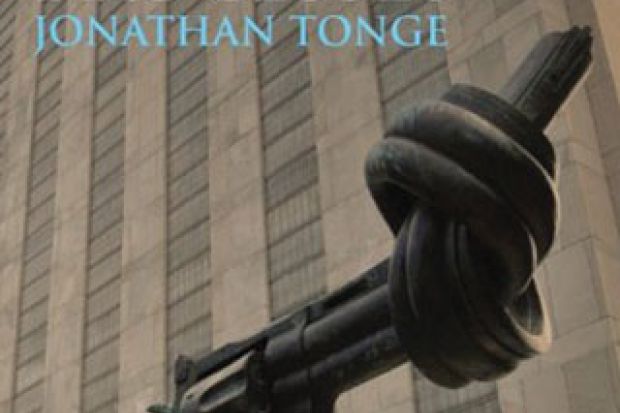John D. Brewer, professor of post-conflict studies, Queen’s University Belfast, is reading Jonathan Tonge’s Comparative Peace Processes (Polity, 2014). “I read this with great pleasure and enjoyment but also with growing disappointment. It is an excellent account of the politics of several peace processes, successful and failed, and illustrates the need for sociologists and political scientists to collaborate. Peace processes will not be fully understood until their sociological and social psychological dimensions are addressed, and we focus as much on societal healing as on institutional reform.”

Jonathan Eaton, research and engagement manager, Newcastle College, is reading Helen Macdonald’s H is for Hawk (Jonathan Cape, 2014). “Gripped by grief after the loss of her beloved father, Macdonald developed an intense relationship with a captive goshawk. The narrative is haunted by the literary presence of T. H. White, whose ill-fated attempt to train a goshawk reflected his own inner demons. This extraordinary book is destined to be the natural successor to J. A. Baker’s classic work The Peregrine.”

Kate D. Griffiths-Dingani, doctoral candidate in anthropology, City University of New York, is reading Pnina Werbner’s The Making of an African Working Class: Politics, Law, and Cultural Protest in the Manual Workers’ Union of Botswana (Pluto Press, 2014). “Filled with engaging interventions into debates about class, critical legal theory and the social production of the state, this book is at its best in its depiction of women working for low wages as employees of the Botswanan government. It succeeds as a homage to E. P. Thompson in drawing a compelling narrative from long, sometimes heated union meetings and factional intrigue.”

E. Stina Lyon, professor emeritus of educational developments in sociology, London South Bank University, is reading Philip Parker’s The Northmen’s Fury: A History of the Viking World (Jonathan Cape, 2014). “Feeling alternately proud and embarrassed about my storytelling, jewellery-making, boat-building and marauding Viking ancestry, this summer I tackled this scholarly work on an ‘imagined community’. There were no ‘Vikings’, only a multitude of tribes over centuries rowing across the seas in search of riches. Am I closer to an answer? No, but I enjoyed looking for it.”

Peter J. Smith, reader in Renaissance literature, Nottingham Trent University, has just finished reading Graham Greene’s Doctor Fischer of Geneva or The Bomb Party (Bodley Head, 1980). “Fischer, a misanthropic Gatsby, throws elaborate parties for toady acquaintances designed to humiliate them. In return, they receive cars, gold watches and blank cheques, symbolising, in Fischer’s words, ‘The greed of the rich which you are never likely to know.’ His son-in-law Albert Jones refuses to play along, with climactic consequences. A love story, a thriller and a devastating parable about human rapacity.”

